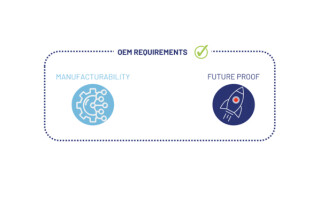E-Sim cards are coming, whether the operators want them or not
July 20, 2017
Blog
Embedded SIM cards hold lots of potential. The operators may not favor them, but they may not have a choice.
The global Embedded SIM (E-Sim) card market is rising steadily due to the several advantages these cards have over conventional SIM cards. For example, E-Sim cards let users change mobile network operators with a few clicks. This ability to switch network providers in real time over the air (OTA) in machine-to-machine systems such as smart meters and connected cars has substantial advantages in terms of reducing logistics and operational costs.
Another feature that sets the E-Sim card apart is its compact design and technical specs that are standardized by the GSMA, which comprises more than 800 mobile operators worldwide. The smaller size accommodates for a larger battery or more storage.
E-Sim cards are being adopting in consumer electronics and automobiles. In the latter, it’s used for real-time navigation, infotainment services such as weather information, traffic, and insurance, and breakdown services. Other automotive uses include remote vehicle monitoring, automatic calling in the event of an emergency, and assuming control over the car should the driver lose consciousness.
A recent study shows that there’s been some resistance to the growth of global E-Sim cards by the operators as the cards eliminate the need for customers to visit a physical store for face-to-face communication with the network provider. This enhances the customer’s bargaining power directly or indirectly, says the study.
eletter-07-21-2017 monthly-eletter-07-01-2017 eletter-07-22-2017




